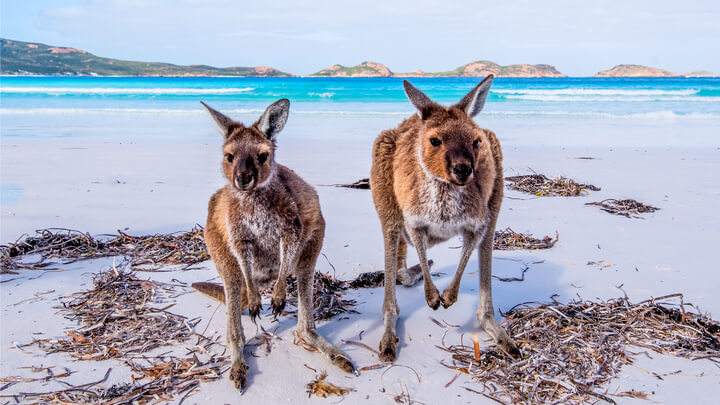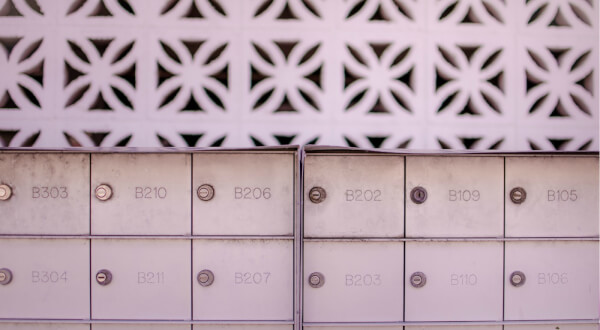Moving to Australia: full expat guide
Everything you need to know about moving to Australia from the USA.

Living and working in Australia is a dream for many. Thanks to Australia’s relatively progressive immigration policies, a little over one fourth of today’s Australian population was born outside of the country. These numbers are set to swell over coming decades, as more expats find their feet in Australia’s sunny climate.
With a booming service sector, and a per capita GDP ranked fifth in the world, it’s not hard to see Australia’s appeal before you even start to consider the lifestyle benefits. However, if you want to get in on the act and move to Australia for a new challenge, you're probably going to need a work visa to do so.
Read this guide to getting your Australian work visa in order, so you can get on with planning your move.
Your first priority should be to figure out if you need a work permit at all. In some cases, depending on your nationality and the role you’re going to take on, a permit might not be necessary.
There are special rules in place for citizens of New Zealand, who usually don’t need a visa or permit to live or work in Australia. However, for most other nationalities, you’ll need to apply for a work visa that suits your personal circumstances.
It’s worth noting that some visa categories have a cap or quota system which means you’ll only be able to get a visa if you fulfil the criteria and the quota hasn’t already been reached for that time period.
There are many different variants of working visas in Australia. Some are intended for skilled workers who are coming to find a position, while others are for people who’ve already secured a job and have employer sponsorship. The Australian Government website has a good section on comparing visa options and processes, which is convenient to help find the right visa for your circumstances.
The exact process you’ll need to follow depends on the visa type. For a General Skilled Migrant visa, you must first submit an application (known as an Expression of Interest or EOI) through SkillSelect. Here, you’ll input essential information about your skills and qualifications which will then be assessed against the needs of the Australian economy.
After completing your EOI, you might be approached by an employer or invited by the government to apply for a visa if your skills are in short supply. If your skills are needed, then you can apply for a visa without employer sponsorship by following the Skilled Independent visa route. It should be noted that these visas can be capped on an annual basis by skill type in order to manage the pool of skills and knowledge in Australia at any one time.
If you’ve been offered a job, then your employer will invite (sometimes called nominating) you to submit your application for a visa. The employer must be approved by the Australian government, and the visa type can be a permanent or temporary work permit depending on the circumstances.
The costs of applying for a visa depend on the visa type and how you apply. It’s usually cheaper to apply online, although small surcharges are applied when making credit card payments. As an example, for a British citizen, applying for a working holiday visa will cost in the region of GBP 285, while the fee for a skilled independent worker visa rises to GBP 2330. The Australian Border authority site hosts a fee calculator which allows you to input the details of the visa you wish to apply for and see an estimated fee structure.
There are visa agencies available who’ll help you apply for your visa for a fee. Agencies based in Australia have to be registered to operate, but those based overseas aren’t regulated. Make sure you take recommendations and have a good understanding of the service you’re buying if you decide to follow this route.
If you choose to submit an EOI through SkillSelect, then you’ll be asked to provide details about your employment and educational history, your ability to speak English and the types of roles you’d be interested in. These are submitted online to allow employers and the regional or national government authorities to review your credentials. Employers might get in touch to discuss immediate opportunities, or the migration authorities might invite you to submit a visa application if they see you have skills which are in demand in their area.
If you’ve been invited or nominated to apply for a visa by an employer, then you must complete the online application, including a declaration of Australian values, stating that you’ll uphold the Australian way of life. There will also be a fee charged and you’ll need to submit documents to support your application. The exact documents will vary depending on your circumstances, but are likely to include the following:
The exact list of documents needed is set out in the visa application document checklist, available on the border authority website.
Any documents that aren’t in English in their original form must be accompanied by accredited translations.
A great option for working in Australia for a short time is a Working Holiday Visa. You may be eligible for this if you’re under 30 years old and hold a passport from an eligible country. You must also prove that you have the money to pay your way in Australia and buy a return ticket at the end of your stay. Visas are generally issued for 12 months and allow you to work for up to 6 months for any one employer. During the visa valid period you can leave and re-enter Australia as many times as you wish.
If you’re coming to Australia to work for a short time in a specialised field - like research or competitive sports - then there’s a specific visa for you. The Temporary Activity Visa for specialised work covers a variety of types of work, including jobs in the entertainment industry or domestic service.
If you’ve been studying in Australia and want to stay on after graduating, you might be able to apply for a Temporary Graduate Visa. This is intended to allow graduates of Australian universities to stay for up to 18 months and work in the field in which they’ve qualified.
Australia recently launched a revised Business Innovation and Investment Visa, which might be suitable for you if you wish to come to Australia to start your own enterprise.
To be eligible for this visa, you must fulfil certain conditions including being under 55 years old, speaking competent English and holding at least a 30% stake in the business venture proposed. Some types of business, such as real estate or franchise agreements, aren’t covered by this visa, although there are specific visa streams for investors of different types.
The specific requirements for the Business Innovation and Investment Visa vary according to the visa type. However, to get a working visa under the entrepreneur stream, you must present a valid business plan and have agreements in place for funding of at least 200000 AUD. Use our business plan template to include a business plan in your application.
If your business is deemed to be successful, you can then apply for permanent residency in Australia after four years.
The terms of some Australian work visas allow you to bring your family members with you to Australia, or to have them join you once you’re here. The family members covered by these agreements include spouse or partner (including same-sex and ‘de facto’ relationships), children and other dependant relatives such as parents in certain circumstances.
In general, all family members will have to undergo health checks such as chest x-rays and blood tests. Adults also have to prove their good character by providing a clean police certificate from any country they’ve lived in for over a year. The Australian border authorities have issued a helpful booklet which describes the requirements and options for different circumstances for your partner’s migration to Australia.
Once you arrive in Australia, you’re able to live and work according to the terms of your visa. However, there’s a general character requirement for all visa holders, which means that your visa can be revoked if you commit a serious crime or have links to criminal activity.
You’re also responsible for making sure that you renew your visa or leave the country before it expires. The VEVO system is an app-based tool that allows you to easily see the terms and conditions of your visa once issued. It can also be used to pass visa details to prospective employers, if you wish. Once you’re settled into your new life in Australia it’s a handy tool to keep track of your visa status and make sure everything’s in order.
To get the most of your money in Australia, you'll want to open a bank account in Australia, which you can do before you arrive.
Once you send money either to or from Australia, consider using a money conversion service like Wise to avoid unfair exchange rates. There's a small transparent fee, and when your money is converted from one currency to another you’ll get the real exchange rate - the same one you can find on Google. Not only that, but Wise receives and sends money via local bank transfers instead of internationally, further saving you money by cutting out hefty international transfer fees.
If your trip is short or opening a bank account in Thailand isn't an option, you can always withdraw money from your foreign account using an ATM there. Just keep in mind it'll be more favorable to agree to be charged in the local currency, not your home currency.
Regardless of when you start your new job abroad, it should be fairly straightforward to get yourself a visa if you follow the right steps. The most important part is just to make sure to enjoy your new adventure!
*Please see terms of use and product availability for your region or visit Wise fees and pricing for the most up to date pricing and fee information.
This publication is provided for general information purposes and does not constitute legal, tax or other professional advice from Wise Payments Limited or its subsidiaries and its affiliates, and it is not intended as a substitute for obtaining advice from a financial advisor or any other professional.
We make no representations, warranties or guarantees, whether expressed or implied, that the content in the publication is accurate, complete or up to date.

Everything you need to know about moving to Australia from the USA.

Having a new baby brings joy and excitement. Along with the excitement, there’s bound to be stress. If you’re an expat and an expectant parent, you face a...

Australia is a place of abundant sunshine and stunning natural scenery. If you love being outside, Australia might be the perfect home for you. The Land Down...

There are lots of people choosing to make their home in Australia. But having the right to live and work there isn’t the same as being an Australian citizen -...

The Land Down Under is a popular destination for tourists from all over the world, as well as expats. With bustling cities and stunning natural scenery, it’s...

There’s a lot that’s great about moving to Australia. And even though getting high-quality healthcare might not be quite as much fun as a day on Bondi Beach...